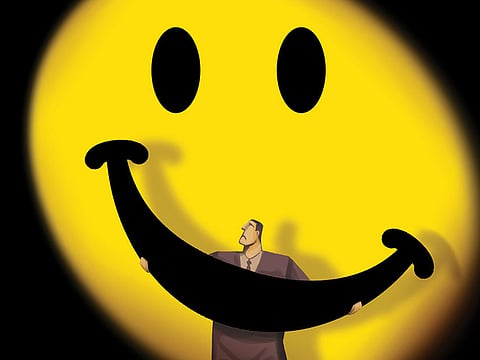Can work make us happy?
Historically, humankind has had a more moderate view of work, if not outright distrust toward it. Nowadays, work is considered a personal development and self-fulfilment tool

Modern culture seems to remind us constantly that happiness and work are necessarily connected, that work keeps boredom, vice and need at bay. It makes people more human through the social ties it creates and keeps our minds engaged and alert. It disciplines the perverted, shepherds the lost, makes mankind virtuous. Those who deliberately choose not to work will be scorned by their contemporaries.
Yet this vision of work as necessary to our lives is relatively new. In The Pleasures and Sorrows of Work, Alain de Botton writes that work may have always been at the centre of every society, but ours is the first to suggest that it could be much more than penance, or punishment, and that we must seek to work even in the absence of financial imperatives.
Historically, humankind has had a more moderate view of work, if not outright distrust toward it. “No society before ours was devoted to work,” writes Jacques Ellul in his book Pour qui, pourquoi travaillons-nous? (“For whom, why do we work?”). In ancient times, it was for inferior people and was exclusively physical. Aristotle, who had a well-known aversion to work, talked about the fundamental incompatibility between satisfaction and a paid job. All remunerated work absorbs and debilitates the mind, he said. Besides, even though the ancient Greeks and Romans relegated their manual work to slaves, they didn’t overburden them with chores. According to Ellul, the tasks were generally light and the slaves had significant leisure time.
To the Aristotelian concept, Christianity added the doctrine that the misery of work was an appropriate way to atone for original sin. In the “Christian” centuries of the Middle Ages, work was regarded as servile, a sign of inferiority and degradation. As a reminder, the Book of Genesis describes it as divine punishment: “Because you ate from the tree of which I forbade you to eat, by the sweat of your face will you eat bread.”
What was the turning point, the moment when work stopped being considered penance and evolved to become the central value of our civilisation? Ellul writes that the Church started giving value to work starting in the 17th century out of opportunism, to seal an alliance with the middle class, the driving force of its expanding power. From that moment, the man who devoted his life to work became a kind of saint.
In the 19th century, among German philosophers, middle-class morals became working morals, and it was in socialist circles that the most exalted ideas could be found. The middle class invented the great dignity of the worker concept, but Marx was the one who led the worker into this now ineradicable belief.
Nowadays, work is considered a personal development and self-fulfillment tool. It’s intrinsically linked to our sense of identity — after all, don’t we say “I’m a lawyer, doctor or architect” and not “I work as a lawyer, doctor or architect”? Some consider it the pivotal point around which our self-construction is organised. The most insistent question that is asked when meeting someone isn’t about hobbies or favourite books, but about what that person “does for a living.”
Isolating people
But must a life necessarily include a job to be fully meaningful? Don’t workers who identify with their jobs and lose themselves in their roles forget their personalities completely? Botton believes reckless cruelty can hide in the magnanimous bourgeois belief that anyone can achieve happiness through work.
It’s not that work is invariably incapable of providing us happiness, but that it almost never does, the author writes. And when an exception is passed off as a rule, our individual misfortunes weigh upon us like curses, instead of appearing to be almost unavoidable aspects of life.
Juliet Schor, author of the book The New Economics of True Wealth, writes that work can isolate people. She explains that when people can afford to pay for services, they ask for them less often as favours. When people spend a lot of time at work, giving a helping hand to friends or neighbours becomes rare. Prosperity itself can be corrosive for the community by reducing our need for one another, she says.
Having a job and a good salary aren’t guarantees of happiness. Studies confirm this surprising result. In several rich countries, the level of well-being has been steady for decades, even though incomes have increased significantly, the author explains.
Data also suggests that China’s rapid growth and material prosperity have reduced, not increased, satisfaction there. So what does make us happy? Unsurprisingly, spending more time with friends and family and taking time to cook and exercise.
Finally, Schor writes that households that work more also consume and pollute more. The worrying state of the planet requires people to earn less, spend less and waste less. And it turns out that workers who slow their rhythm rarely want to turn back.
— Worldcrunch/ New York Times News Service

